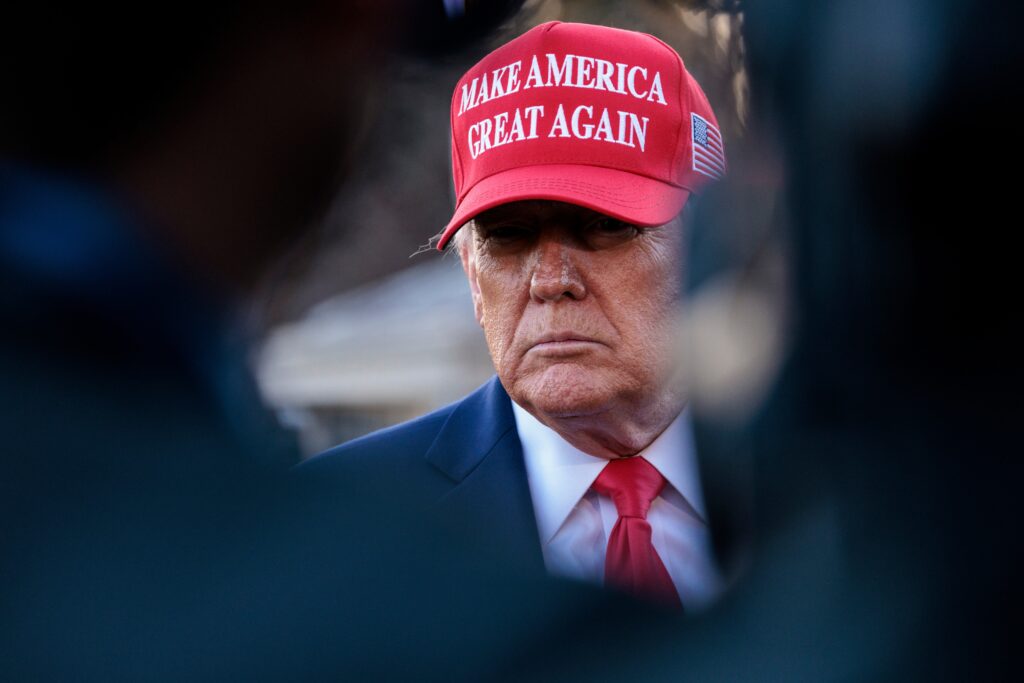The Kremlin has downplayed the possibility of an imminent summit between Vladimir Putin and Volodymyr Zelensky. At the same time, Donald Trump renewed his call for the two leaders to meet to discuss ending the war in Ukraine.
The push for direct talks comes after Trump met Putin in Alaska last week. On Monday, he welcomed seven European leaders and Zelensky to the White House.
Trump admitted the conflict was difficult to solve. He acknowledged that Putin might not want to end hostilities. “We’re going to find out about President Putin in the next couple of weeks,” he said on Tuesday. “It’s possible that he doesn’t want to make a deal.”
Trump suggests Zelensky and Putin should meet without him
Trump added that Putin faced “a rough situation” if he refused to negotiate, without offering details. He later suggested it would be better if Putin and Zelensky met without him. The remarks came during a late-night interview with conservative radio host Mark Levin.
The US president explained he would attend a meeting with both leaders “if necessary” but wanted to “see what happens.”
Putin told Trump on Monday he was “open” to the idea of direct talks with Ukraine. However, Russian Foreign Minister Sergei Lavrov scaled back the vague commitment the following day.
Lavrov said any meeting would need gradual preparation, starting at expert level and moving through required steps. Moscow has often repeated this line.
A Russian deputy representative to the UN, Dmitry Polyanskiy, said no one had rejected the chance of talks. He stressed, however, that the meeting should not happen “for the sake of a meeting.”
Nato chiefs prepare while Russia suggests talks in Moscow
Nato’s military chiefs are expected to hold a virtual meeting on Wednesday. Britain’s top commander, Admiral Tony Radakin, is travelling to Washington for discussions about a reassurance force in Ukraine.
Reports on Tuesday suggested Putin had told Trump that Zelensky could travel to Moscow for talks. Ukraine was never likely to accept such a proposal. Observers described it as an unrealistic option designed to appear constructive.
Recent talks seem to have given Trump a deeper grasp of the war’s complexity. He now appears aware of the gulf between Moscow’s demands and Kyiv’s position.
Trump once said he could quickly secure a ceasefire from Putin. That has not happened. Instead, he has shifted focus to a permanent peace deal, while backing stronger security guarantees for Ukraine.
Zelensky and European leaders have pushed Trump to support such commitments. They argued that Ukraine’s sovereignty depends on them if peace is achieved.
Trump promises air support but no ground troops
On Tuesday, Trump said the US would help Europeans “by air” if they provided ground troops in Ukraine. He ruled out deploying American forces. He did not specify whether air support meant intelligence, fighter jets, or other aircraft.
Meanwhile, France and the UK are leading a “coalition of the willing.” The group aims to finalise plans for a reassurance force that could move into Ukraine if hostilities end.
After a virtual meeting on Tuesday, a Downing Street spokesperson said the coalition would meet US counterparts in the coming days. They want to strengthen plans for firm security guarantees.
Bad blood remains between leaders
After meeting Putin and later Zelensky, Trump now believes direct talks could bring a peace deal closer. Yet he admitted there had been “tremendous bad blood” between the leaders.
Putin and Zelensky last met in 2019. Since then, Moscow’s invasion has caused tens of thousands of deaths, widespread destruction, and repeated airstrikes on civilians.
Putin dismisses Zelensky as illegitimate. He blames him for Ukraine’s closer ties with the West. For years, Moscow has claimed—without evidence—that Kyiv is ruled by a “neo-Nazi regime.” Putin insists any ceasefire must involve a change in Ukraine’s leadership.
Russia also sees little reason to negotiate while its troops hold the advantage on the battlefield.
Still, Zelensky and European leaders favour the idea of a meeting. Zelensky said on Monday he was open to “any format” of talks. European officials have already floated potential summit locations.
By supporting direct negotiations, they likely aim to push Trump into a firmer stance if Putin refuses to compromise.
Europe doubts Putin’s intentions
Ukraine’s European partners appear less optimistic than Trump about a resolution. On Tuesday, French President Emmanuel Macron called Putin “a predator, and an ogre at our doorstep.” He voiced deep doubts about Moscow’s willingness to seek peace.
Finnish President Alexander Stubb echoed that sentiment. He said Putin was “rarely to be trusted” and expressed scepticism that a meeting with Zelensky would happen.
More high-level talks are expected in the coming days. European leaders remain uncertain about the depth of Trump’s commitment to their security.

